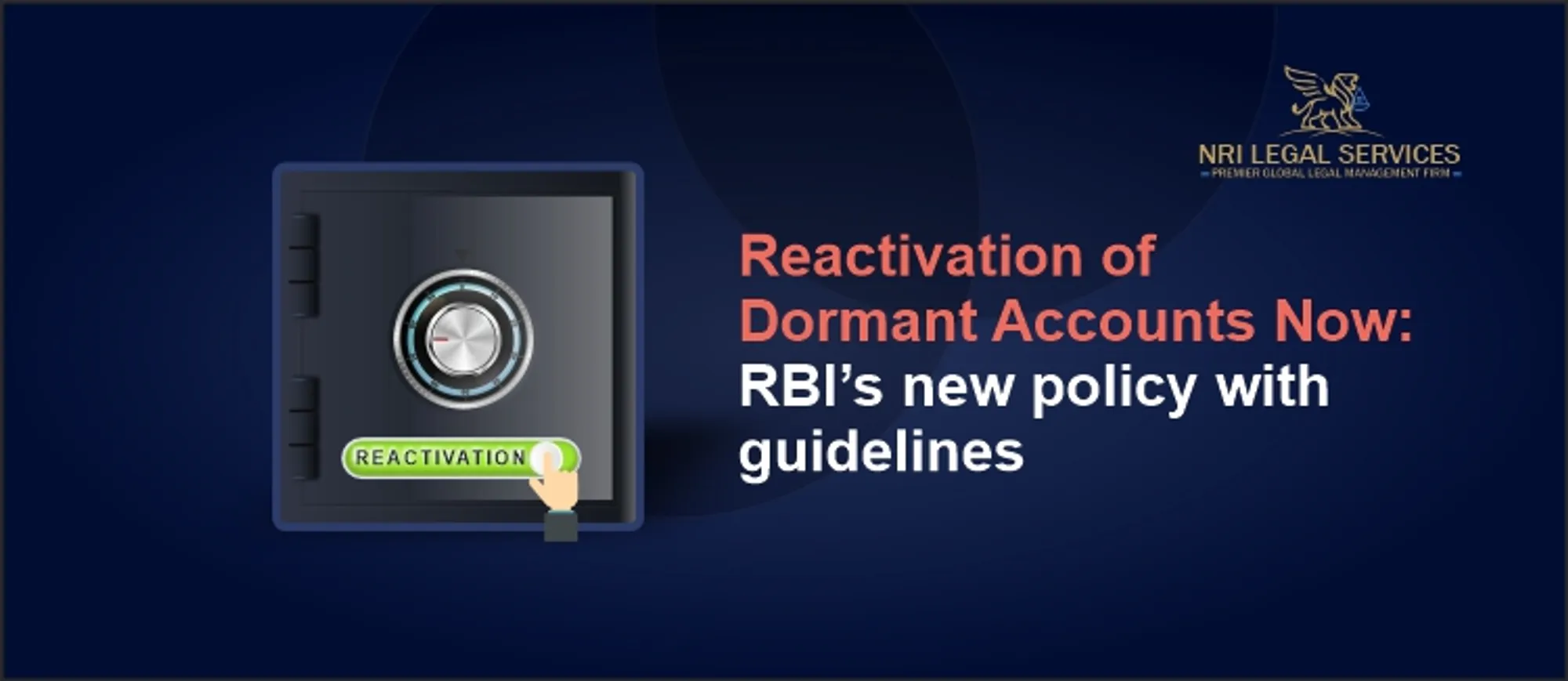Summary
The Reserve Bank of India issued new set of guidelines to streamline the process of reactivating dormant accounts and ensuring that the accounts do not remain unused for longer period of time and some activities are carried out regularly. These new guidelines ensure simpler methods of reactivation of dormant accounts and provide secure and safe transactions.
Table of Contents
Introduction
The Reserve Bank of India in its new policy effective 01.01.2025 has introduced guidelines for dormant accounts. These guidelines streamline and enhance banking and operational security. They lay focus on closure of dormant, inactive and zero balance accounts. Now the account holders must take proactive steps to prevent their accounts from being closed under the new rules.
Definition of dormant accounts
A Dormant Account is that account which has been remained idle (inactive) for a long time i.e. two years or more and no transaction has been made by the account holder.
Must Read: NRI Banking Services and Repatriation
RBI’s policy for reactivation of dormant accounts
The most important features of RBI’s reactivation policy are the following
- Simplified process of reactivation: Customers will now be able to reactivate their accounts online if their KYC (Know your customer) details are updated. Additionally, the banks must allow the account holders to reactivate their accounts through digital banking, net banking or mobile banking in addition to branch visits. Further, a single customer-initiated transaction (deposit, withdrawal or fund transfer) is sufficient to reactivate an inactive account.
- Updated KYC necessary: If in case the bank account is dormant then customers must update their KYC details before reactivating their account. Further, banks have been instructed to send reminders via SMS, emails and letters to customers regarding their account status and KYC requirements.
- Absence of Penal Charges: As per the new rules, the banks are not at a liberty to claim any penal charges for dormancy of their accounts. The interest will continue to be credited even if the account is inactive or dormant.
- Awareness of customer and prevention of fraud: The banks will be required to proactively inform customers about their account status. A dormant account cannot be used for fraudulent activities and banks must monitor such accounts for suspicious transactions. Further, security layers such as OTP authentication will be mandatory for reactivating accounts.
Mandatory procedure to be followed for reactivating a dormant account
In case your account has been declared as a dormant account the following steps can be followed by the customers to reactivate it:
- Visit the bank branch or in the alternative use Online banking: The customer can visit the Bank Branch or use online banking: If the customer’s KYC is updated then the account can be activated online. If KYC is outdated, the customer can visit the bank branch in person.
- Submission of KYC documents and address proof: The customer can submit their KYC documents (ID proof and address proof for eg. Aadhar Card, Pan Card, passport etc.) for verification of their KYC details.
- Performing a transaction: The customer can withdraw or deposit money from their account. Also, the customer can transfer using net banking, mobile banking or UPI.
- Checking account status: The customer can ensure that his account remains active by regularly checking its status online by logging into online banking. The banks may then send a confirmation via SMS or E-Mail upon successful reactivation of the dormant account.
Must Read: Litigation Process in Property Disputes for NRIs
Preventive measures to restrain your account from being declared as a dormant account
There are several preventive measures that a customer can take for restraining his account from being declared as a DORMANT ACCOUNT. They are as follows:
- The account holders must conduct at least one transaction one every twelve months so that the account remains active.
- The account holders must keep their KYC details updated so in order to avoid their accounts being declared as Dormant accounts.
- They can set up a small automated payment system i.e., Rs. 1 for transfer to another account on a regular basis in order to keep the account active.
Implications for dormant account holders
The Reserve Bank of India’s new policies may impact the Dormant Account holders in the following ways:
- Strict KYC norms for dormant accounts: RBI will be enforcing KYC (Know Your Customer) checks for dormant accounts which will ensure that only legitimate customers can reactivate their accounts.
- Faster transfer of unclaimed funds to deaf: As per the new RBI policy, those dormant accounts which have unclaimed balances for over a period of 10 years will be transferred to the Depositor Education and Awareness Fund (DEAF) more efficiently.
- Digital re-activation options: through the new policy the Reserve Bank of India is encouraging banks to introduce online and mobile banking-based reactivation processes for dormant accounts. Necessity of customer’s physical visits to the banks will be reduced.
- Potential service charges for dormant accounts: There are chances that some banks may start levying maintenance charges on dormant accounts with small balances, as a way to encourage customers to either reactivate or close them.
- Impact on fixed deposits in dormant accounts: The interest accrued on fixed deposits will remain intact in dormant accounts. But auto- renewal of such FD’s will not be possible and may require extra step of verification and authentication.
Must Read: Indian Real Estate Market
Conclusion
RBI policy for dormant accounts ensures a simpler, faster and safer process for customers while enhancing security and reducing risks of fraud. By staying active with transactions and keeping KYC updated, account holders can avoid dormancy and ensure smooth banking operations.

